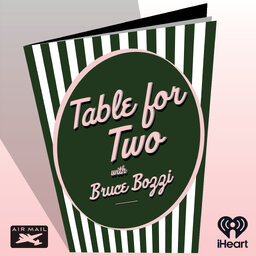Damian Woetzel
Damian Woetzel’s rise to the top of the ballet world seems straightforward. From his childhood in Boston he demonstrated an aptitude for ballet; by his late teens, he was touring nationally as part of the Los Angeles Ballet; and in the mid-1980s, at 18, he eschewed college to pursue a career as a dancer in New York City. Over the following two decades, Woetzel climbed the New York City Ballet’s ranks, first becoming a principal dancer, then a household name. In his mid-30s, with the prospect of retirement looming, Woetzel decided to head up to Cambridge, Massachusetts, where he graduated from Harvard’s Kennedy School of Government in 2007 with an M.P.A., a distinction that, a decade later, led to him becoming The Juilliard School’s seventh president. On this episode of Table for Two, Woetzel joins host Bruce Bozzi for lunch at IRIS in New York City, where they discuss his early years in New York, former U.S. Representative Gabrielle Gifford’s role in motivating him to return to school, and his plan for leading an arts conservatory into the modern age.
 Table for Two
Table for Two


